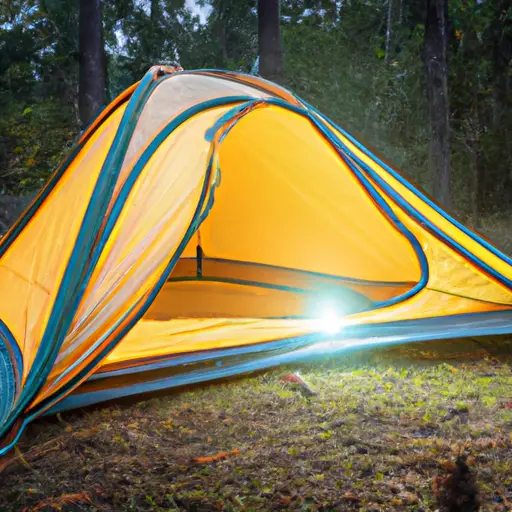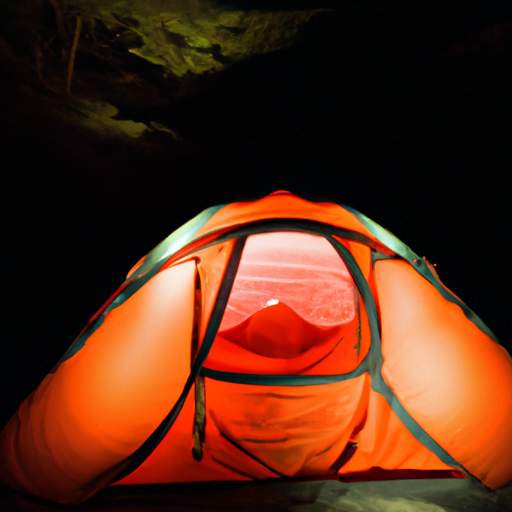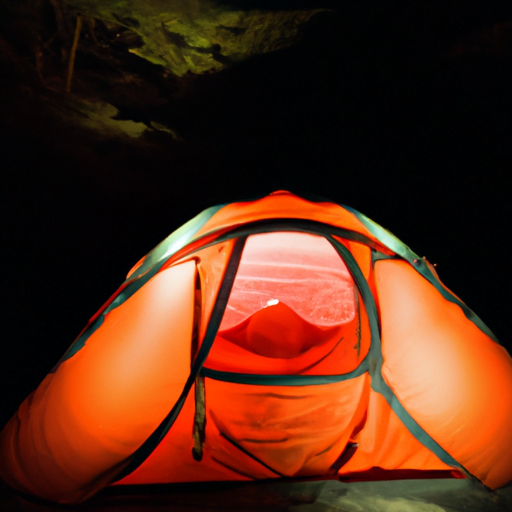So, you’ve decided to go off grid and immerse yourself in the great outdoors. Whether it’s a camping trip or a weekend getaway, sleeping under the stars can be an amazing experience. But let’s face it, the night can get pretty chilly, especially if you’re in a tent. So, how do you keep that cozy warmth inside while the temperatures drop outside?
In this article, we’ll be discussing 5 tips for keeping your tent warm at night. We’ll delve into some practical solutions that will help you stay comfortable and snug during your outdoor adventures. Whether you’re a seasoned camper or a beginner, these tips will surely come in handy. So, if you’re ready to learn more about staying warm in your tent, keep reading!
First things first, insulation is key. The ground beneath your tent can suck away a lot of heat, so make sure to invest in a good sleeping pad or mattress. This will provide an additional layer of insulation and help prevent the cold from seeping through. Additionally, placing a tarp or a groundsheet underneath your tent can also help to keep the cold at bay.
Another tip is to seal up any openings in your tent. Drafts can quickly zap away your warmth, so take the time to properly close all zippers and ensure that the tent’s rainfly is secured tightly. You can also use blankets or sleeping bags to block any gaps around the door or windows. Remember, the more airtight your tent, the better it will retain heat.
And speaking of blankets and sleeping bags, investing in high-quality ones can make a world of difference. Opt for sleeping bags that are specifically designed for cold weather conditions and ensure that they have a temperature rating suitable for the coldest nights you anticipate. Layering with blankets can also provide extra warmth, so don’t be afraid to bundle up.
So there you have it – three tips for keeping your tent warm at night. But that’s not all! In our next paragraphs, we’ll be exploring two more strategies that will help you beat the chill and enjoy a cozy night’s sleep. Stay tuned for more helpful tips coming your way!

5 Tips for Keeping Your Tent Warm at Night
Insulate the Ground
When it comes to keeping warm inside your tent, one of the most important factors to consider is the insulation of the ground beneath you. The ground can absorb and steal away heat from your body, leaving you cold and uncomfortable throughout the night. To combat this, it’s essential to insulate the ground and create a barrier between you and the cold surface.
One of the easiest ways to insulate the ground is by using a groundsheet or a tarp underneath your tent. This acts as a protective layer, preventing the cold from seeping through and keeping you warmer. Additionally, using foam or inflatable sleeping pads can provide extra insulation and cushioning, ensuring a cozy and comfortable night’s sleep.
Choose an Appropriate Tent
The type of tent you choose can greatly affect how warm you will be at night. When camping in cold weather, it’s crucial to opt for a tent that is specifically designed for colder temperatures. Look for tents made from durable materials with good insulation properties.
Cold-weather tents often have additional features like double-layered walls, reinforced stitching, and vestibules to provide extra protection against the elements. These features help create a warmer interior and ensure that you can hunker down comfortably even in chilly conditions.
Use a Sleeping Bag Suitable for Cold Weather
Investing in a high-quality sleeping bag that is suitable for cold weather is essential for a warm and cozy night in your tent. Sleeping bags designed for colder temperatures usually have a lower temperature rating, indicating their effectiveness in keeping you warm.
Opt for a sleeping bag that is rated for temperatures lower than what you expect to encounter during your camping trip. Synthetic and down sleeping bags are both good options, with down being the more efficient insulator but potentially more expensive. Make sure to also consider the size and shape of the sleeping bag to ensure a snug fit, which will help trap your body heat better.
Layer Clothing for Maximum Warmth
Just as layering your clothing is important when dressing for cold weather outside, it’s equally important when sleeping in a tent. Layering not only helps trap warmth close to your body but also allows you to adjust your insulation according to your comfort level.
Start with a base layer of thermal or moisture-wicking clothing to keep your skin dry. Layer on top with insulating materials like fleece or wool, which are excellent at retaining heat. Finally, add a waterproof and wind-resistant outer layer to protect against any moisture or drafts that may seep through your tent.
Utilize Portable Heaters or Warmers
If you’re camping in extremely cold weather and want to ensure maximum comfort inside your tent, utilizing portable heaters or warmers can make a significant difference. There are various options available, including propane heaters, electric heaters, and even heated blankets or foot warmers.
When using portable heaters, it’s essential to follow safety precautions and manufacturer instructions to prevent accidents or carbon monoxide poisoning. Proper ventilation is crucial, so ensure that there is sufficient air circulation inside the tent.
Seal any Drafts or Gaps
Even the smallest gaps or drafts in your tent can significantly impact the interior temperature. Before settling in for the night, take the time to inspect your tent for any openings and seal them properly. Pay particular attention to the tent door, windows, and any seams that may have become loose or worn over time.
Weatherstripping tape can be used to seal any drafts or gaps. Additionally, placing heavy objects, such as rocks or logs, around the edges of the tent can help secure it further against gusts of wind and prevent cold air from entering.
Create a Cozy Sleeping Area
To maximize warmth during the night, creating a cozy sleeping area inside your tent is essential. Start by organizing your gear and clothing, keeping them neat and out of the way. This allows for better air circulation and prevents cold spots from forming.
You can also create a warmer sleeping area by layering blankets or sleeping bags on top of your sleeping pad or mattress. This provides an additional insulating layer between you and the ground.
Make Use of Hot Water Bottles
Hot water bottles can be a simple yet effective way to keep warm inside your tent during colder nights. Fill a durable and leak-proof water bottle with hot water before getting into your sleeping bag, then place it close to your body or at the foot of your bed. The hot water will radiate heat throughout the night, keeping you cozy and toasty.
Keep Moisture at Bay
Moisture can quickly become your worst enemy when camping in cold weather. Not only does it make the tent feel colder, but it can also lead to condensation and dampness, making it challenging to keep warm.
To prevent moisture buildup inside your tent, make sure to properly vent it during the day and especially before going to sleep. Keep wet gear or clothing outside the tent or in a separate compartment to avoid introducing excess moisture. If condensation still becomes an issue, consider using a camping dehumidifier or moisture-absorbing products to help control humidity levels.
Conclusion
When camping in cold weather, it’s crucial to take the necessary steps to keep your tent warm at night. By insulating the ground, choosing an appropriate tent, using the right sleeping bag, layering clothing, utilizing portable heaters or warmers, sealing drafts or gaps, creating a cozy sleeping area, making use of hot water bottles, and keeping moisture at bay, you can ensure a comfortable and cozy camping experience even in chilly temperatures. Stay warm, sleep well, and enjoy your outdoor adventures all year round!





